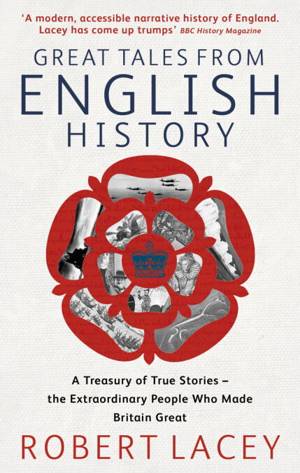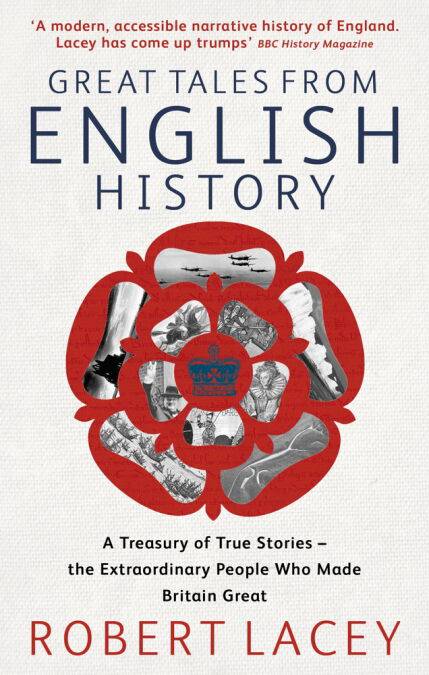
- Afhalen na 1 uur in een winkel met voorraad
- Gratis thuislevering in België vanaf € 30
- Ruim aanbod met 7 miljoen producten
- Afhalen na 1 uur in een winkel met voorraad
- Gratis thuislevering in België vanaf € 30
- Ruim aanbod met 7 miljoen producten
Zoeken
€ 3,99
+ 3 punten
Uitvoering
Omschrijving
From ancient times to the present day, the story of England has been laced with drama, intrigue, courage and passion - a rich and vibrant narrative of heroes and villains, kings and rebels, artists and highwaymen, bishops and scientists. Now, in Great Tales of English History, Robert Lacey captures one hundred of the most pivotal moments: the stories and extraordinary characters who helped shape a nation. This first volume begins in 7150 BC with the life and death of Cheddar Man and ends in 1381with Wat Tyler and the Peasants' Revolt. We meet the Greek navigator Pytheus, whose description of the Celts as prettanike (the 'painted people') yielded the Latin word Britannici. We witness the Roman victory celebrations of AD 43, where a squadron of elephants were paraded through Colchester. And we visit the New Forest, in 1100, and the mysterious shooting of King William Rufus. Packed with insight, humour and fascinating detail, Robert Lacey brings the stories that made England brilliantly to life. From Ethelred the Unready to Richard the Lionheart, the Venerable Bede to the Black Prince, this is, quite simply, history as history should be told.
Specificaties
Betrokkenen
- Auteur(s):
- Uitgeverij:
Inhoud
- Taal:
- Engels
Eigenschappen
- Productcode (EAN):
- 9781405513081
- Verschijningsdatum:
- 30/11/2011
- Uitvoering:
- E-book
- Beveiligd met:
- Adobe DRM
- Formaat:
- ePub

Alleen bij Standaard Boekhandel
+ 3 punten op je klantenkaart van Standaard Boekhandel
Beoordelingen
We publiceren alleen reviews die voldoen aan de voorwaarden voor reviews. Bekijk onze voorwaarden voor reviews.








